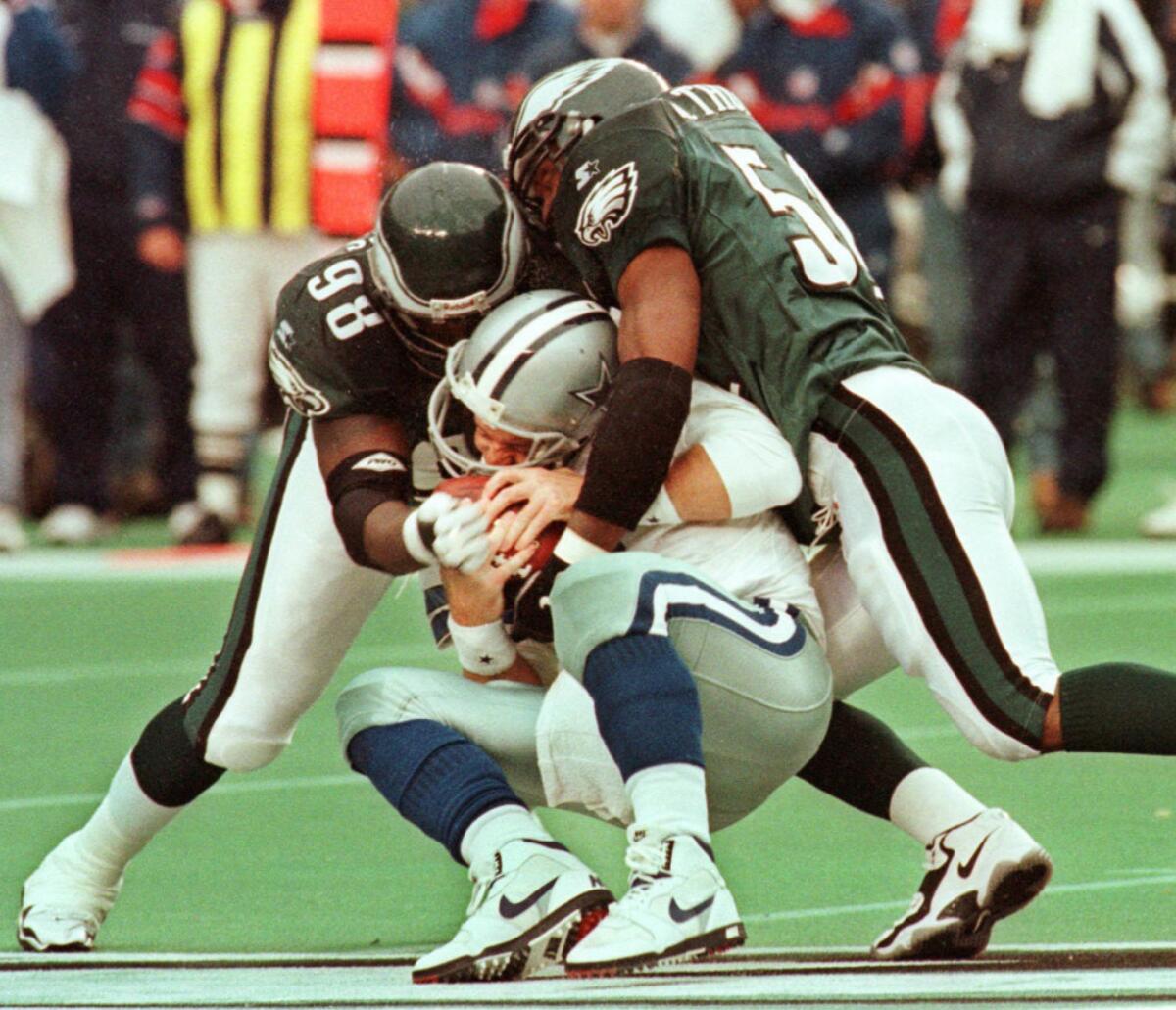Report: NFL based its concussion research on incomplete data

Cowboys quarterback Troy Aikman suffered a concussion on this 1997 play when sacked by the Eagles’ Jimmie Jones, left, and William Thomas.
Concussion research used by the NFL as evidence that brain injuries did not cause long-term damage to its players was based on incomplete data, according to a report by the New York Times.
The newspaper’s investigation determined the research by the league’s concussion committee to be “far more flawed than previously known” because it omitted more than 100 diagnosed concussions -- which represent more than 10% of the total -- but was presented as if based on every concussion diagnosed by every team physician from 1996 to 2001.
League officials told the New York Times that “the clubs were not required to submit their data and not every club did” and that the studies “never purported” to include all concussions. The NFL also said in a statement that the omission of the data was not an attempt “to alter or suppress the rate of concussions.”
“If somebody made a human error or somebody assumed the data was absolutely correct and didn’t question it, well, we screwed up,” said committee member Dr. Joseph Waeckerle, who told the New York Times he had been unaware of the omissions.
“If we found it wasn’t accurate and still used it, that’s not a screw-up; that’s a lie.”
The NFL released a statement Thursday refuting much of the New York Times report, saying saying it “is contradicted by clear facts that refute both the thesis of the story and each of its allegations.”
On the topic of incomplete data used in the committee’s studies, the NFL said in its statement: “The studies never claimed to be based on every concussion that was reported or that occurred. Moreover, the fact that not all concussions were reported is consistent with the fact that reporting was strongly encouraged by the League but not mandated, as documents provided to the Times showed.”
Overall, the NFL stated, “the Times’ sensationalized story is further refuted by the NFL’s ongoing commitment on the issue of player health and safety -- notably, to the support of research, including that of our most vocal critics, on the long-term effects of concussions in all sports, and to change our game in an effort to make the sport of football as safe as it can be.”
Twitter: @chewkiii
More to Read
Go beyond the scoreboard
Get the latest on L.A.'s teams in the daily Sports Report newsletter.
You may occasionally receive promotional content from the Los Angeles Times.











